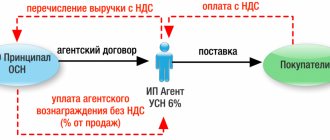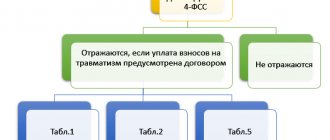What is a contract
A work contract (civil contract of civil law nature) is an agreement in which one party (contractor) undertakes to perform certain work on the instructions of the other party (customer) and deliver its result to the customer, and the latter undertakes to accept the result of the work and pay for it (Art. 702 of the Civil Code of the Russian Federation).
The work contract is considered one of the oldest civil law contracts. It was already known to Roman law, which defined it as hiring work and was divided into three types - hiring of things, contracting, hiring of services.
After the revolution in Soviet legislation, contracting was identified as a separate contractual type. According to the Civil Code of 1922, under a contract, one party (contractor) undertakes, at his own risk, to perform certain work on the instructions of the other party (customer), and the latter undertakes to provide remuneration for completing the task. The Civil Code of 1964 defined a contract as an agreement under which the contractor undertakes to perform, at his own risk, certain work on the instructions of the customer from his or his own materials, and the customer undertakes to accept and pay for the work performed (Article 350).
The Civil Code of the Russian Federation of 1994 identifies the types of construction contracts (Chapter 37):
- domestic;
- construction contract;
- contract for design and survey work;
- contract work for government needs.
A contract with an individual can be used in cases of one-time work. Examples: legal services, office renovation, fence painting, etc.
Calculation of remuneration under the GPC agreement
Accrual is carried out using the “Payroll” document.
In the example, we have a contract from May to July 2022, payment at the end of the term, so the employee will be included in the “Payroll” document in July.
Personal income tax and contributions are automatically calculated.
Posting a document.
Advantages and disadvantages of a contract with an individual
Such an agreement often attracts the attention of tax authorities. The conclusion of civil contracts that actually regulate labor relations between an employee and an employer is not allowed (Article 15 of the Labor Code of the Russian Federation). Tax authorities may recognize it as work and then the organization may be fined. Evasion from registration or improper execution of an employment contract or the conclusion of a civil contract that actually regulates labor relations between an employee and an employer entails the imposition of an administrative fine (Article 5.27 of the Code of Administrative Offenses of the Russian Federation):
- for officials in the amount of 10 (ten) thousand to 20 (twenty) thousand rubles;
- for persons carrying out entrepreneurial activities without forming a legal entity, from 5 (five) thousand to 10 (ten) thousand rubles;
- for legal entities - from 50 (fifty) thousand to 100 (one hundred) thousand rubles.
In addition, you will have to pay some amounts to the employee (for example, compensation for vacation).
Comparison of contract and employment contract
| Element of difference | Employment contract | Work agreement |
| Purpose of the agreement | The labor process, that is, the performance by an employee of certain functions defined for his position. | Achievement by the contractor of certain results and transfer of the result to the customer within a specified time frame. |
| Salary | Salaries are paid monthly, regardless of the result. | Payment is made based on the results of the work. |
| Subordination | Submits to the internal labor regulations of the organization. | The contractor independently determines how to complete the customer’s assignment. |
| Ownership | Anything created by an employee belongs to the employer. | An item manufactured by a contractor until it is transferred to the customer belongs to the contractor by right of ownership. |
By the way, tax authorities can recognize a contract as a labor agreement only in court. Examples of judicial practice on this issue:
- Resolution of the Federal Antimonopoly Service of the Volga-Vyatka District dated May 25, 2011 in case No. A17-2880/2010. The court found that the employees with whom the Company entered into civil contracts are actually assigned to a specific position, indicating a specific job function and qualifications, and perform work of a certain type, and not one-time tasks.
- Resolution of the Federal Antimonopoly Service of the East Siberian District dated April 24, 2008 No. A33-8071/07-F02-1640/08 in case No. A33-8071/07. The court came to the conclusion that the work was not of a civil law nature, but of a labor nature, since under the terms of the contracts the employee undertakes to perform work in a certain specialty, and the Company undertakes to pay the employee remuneration at certain intervals. From the subject of the contracts it is clear that under the contract not any specific one-time work was performed, but certain functions were performed.
- Resolution of the Federal Antimonopoly Service of the Ural District dated August 18, 2008 No. F09-5783/08-S2 in case No. A71-10321/07. The court found that, in accordance with the contracts, individuals were obliged to perform work in a certain position, specialty or profession, employees worked 5 days a week from 08-00 to 17-00, work on weekends was paid double, employees were subject to labor regulations of the Company, some of the employees underwent professional training at the expense of the Company.
Advantages of a contract for the customer
+1 Quite a free interpretation of the terms of the agreement and its financing;
+2 For remuneration you do not need to pay contributions to the Social Insurance Fund;
+3 No need to pay for vacations and sick leave.
Advantages of a contract for a contractor
+1 Reduction of the personal income tax tax base by the amount of actual expenses that are associated with the fulfillment of contractual obligations. Expenses must be supported by relevant documents.
Accounting
The cost of construction and installation work accepted by the general contractor and performed by the subcontractor under a subcontract agreement is included in expenses for ordinary activities (clause 5 of PBU 10/99, clause 10 of PBU 2/2008). The basis for reflecting the cost of construction and installation work performed by a subcontractor as part of expenses is the documents drawn up when transferring the results of completed work (individual stages of construction) to the general contractor. For more information about this, see How to record a contractor's income under a construction contract.
The general contractor's expenses under the contract are:
- costs associated with performing work under a construction contract using your own resources;
- the cost of construction and installation work performed by a subcontractor under a subcontract agreement.
The general contractor reflects the costs associated with performing work under a construction contract on its own in accounting in the same manner as the contractor.
The cost of construction and installation work performed by the subcontractor is reflected by posting:
Debit 20 Credit 60 subaccount “Settlements with the subcontractor” - reflects the cost of work performed by the subcontractor (based on the act in form No. KS-2 and certificate in form No. KS-3).
The general contractor's income is the proceeds from the implementation of work under a construction contract. The general contractor reflects this revenue in accounting in the same manner as the contractor.
In addition, the general contractor may provide the subcontractor with certain services related to the execution of the subcontract agreement (letter of the Gosstroy of Russia dated March 17, 2000 No. 10-92). For example, rent out machinery and premises located at a construction site, perform loading and unloading operations, and guard materials belonging to the subcontractor. The list, cost and payment procedure for the general contractor’s services are determined either in a separate contract for the provision of paid services or in a separate section of the subcontract agreement. The cost of such services must be determined based on quantitative indicators (for example, machine hours - for machine services, square meters of area - when leasing premises) and the cost of these services, determined by the contract.
Acceptance of services provided by the general contractor can be formalized by an act or other document confirming the fact of provision of the service (Clause 2 of Article 720, Article 783 of the Civil Code of the Russian Federation).
In accounting, write off the costs of providing the general contractor's services as expenses by posting:
Debit 90-2 Credit 26 – costs attributable to the provision of general contracting services are written off.
Recognize the services of the general contractor to the subcontractor in the amount agreed upon by the parties, provided that they are actually provided, which is confirmed by the certificate of provision of services. Make an entry in accounting:
Debit 62 subaccount “Settlements with subcontractor” Credit 90-1 – revenue from the sale of services provided by the general contractor to the subcontractor is reflected (based on the service provision certificate).
If the general contractor is a VAT payer, simultaneously with the recognition of revenue, he accrues this tax by posting:
Debit 90-3 Credit 68 subaccount “Calculations for VAT” - VAT is charged on the cost of services provided by the general contractor to the subcontractor.
As a rule, the general contractor withholds payment for services provided to the subcontractor when paying for the work performed by the subcontractor. However, this does not mean that the acceptance and transfer documents for construction and installation work reflect the cost of the work, reduced by the amount of the general contractor’s services. Since there is counter-fulfillment of obligations, the subcontractor records revenue from the sale of work performed, and the general contractor records revenue from the sale of services provided.
The general contractor reflects the following netting in accounting by posting:
Debit 60 subaccount “Settlements with subcontractor” Credit 62 subaccount “Settlements with subcontractor” - the debt to the subcontractor is reduced by the cost of general contracting services.
The general contractor reflects the final settlement with the subcontractor by posting:
Debit 60 subaccount “Settlements with subcontractor” Credit 51 – final settlement with the subcontractor has been made (minus general contracting services).
An example of how revenue from the implementation of work and expenses under a construction contract are reflected in the accounting of a general contractor. To perform certain works, the general contractor engages a subcontractor. Contract work is short-term in nature. The developer accepts the completed construction project
In April, Alpha LLC (developer) entered into a construction contract for the construction of the facility with Proizvodstvennaya LLC (general contractor). The cost of all work on the construction of the facility, according to the estimate, is 5,900,000 rubles. (including VAT – RUB 900,000).
Under the terms of the construction contract, the “Master” has the right to engage subcontractors to perform the work. In April, Master hired a subcontractor to carry out specialized work. The price of the subcontract agreement is RUB 1,180,000. (including VAT – 180,000 rubles).
According to the terms of the agreement, general contracting services account for 4 percent of the cost of construction and installation work. Payment for services is made upon delivery of finished work by the subcontractor. This amount is deducted from the payment due to the subcontractor for the work performed.
The Master's accounting policy establishes a calculation method for determining expenses attributable to general contracting services provided: in proportion to the share of work performed by the subcontractor in the total volume of construction and installation work.
In April, “Alpha” transfers an advance to “Master” in the amount of 2,360,000 rubles. In the same month, the “Master” transfers an advance to the subcontractor in the amount of 590,000 rubles.
In June, the subcontractor completed construction work in full and handed it over to the general contractor. In the same month, the final payment under the subcontract agreement was made.
The costs of construction and installation work (excluding the cost of work performed by the subcontractor) for April–June amounted to:
- production costs - 3,250,000 rubles;
- administrative and economic expenses attributable to services provided to the subcontractor - 150,000 rubles.
In July, the general contractor completed construction of the facility and handed it over to the developer.
In the accounting of “Master”, transactions related to the execution of a construction contract and a subcontract agreement are reflected as follows.
In April:
Debit 51 Credit 62 subaccount “Settlements with the developer for advances received” – RUB 2,360,000. – an advance was received as payment for construction work under a construction contract;
Debit 76 subaccount “Calculations for VAT on advances received” Credit 68 subaccount “Calculations for VAT” - 360,000 rubles. (RUB 2,360,000 × 18/118) – VAT is charged on the prepayment amount;
Debit 60 subaccount “Settlements with the subcontractor for advances issued” Credit 51 – 590,000 rubles. – an advance was transferred to the subcontractor as payment for construction work under the subcontract;
Debit 68 subaccount “Calculations for VAT” Credit 76 subaccount “Calculations for VAT from advances issued” – 90,000 rubles. – VAT paid to the subcontractor as part of the advance payment is accepted for deduction.
In June:
Debit 20 Credit 10 (68, 69, 70, 76, 60...) – RUB 3,250,000. – production costs under the construction contract are reflected;
Debit 26 Credit 10 (68, 69, 70, 76, 60...) – 150,000 rub. – administrative and economic expenses are reflected;
Debit 20 Credit 60 subaccount “Settlements with subcontractor” – 1,000,000 rubles. – completed work on the construction of the facility was accepted from the subcontractor (excluding VAT);
Debit 19 Credit 60 subaccount “Settlements with subcontractor” – 180,000 rubles. – reflects the amount of VAT on construction work presented by the subcontractor;
Debit 68 subaccount “Calculations for VAT” Credit 19 – 180,000 rubles. – VAT is accepted for deduction;
Debit 76 subaccount “Calculations for VAT on advances issued” Credit 68 subaccount “Calculations for VAT” - 90,000 rubles. – VAT, previously accepted for deduction from the advance payment, has been restored;
Debit 62 subaccount “Settlements with subcontractor” Credit 90-1 – 47,000 rubles. (RUB 1,180,000 × 4%) – reflects the sale of general contracting services provided to the subcontractor;
Debit 90-3 Credit 68 subaccount “VAT calculations” – 7169 rubles. (RUB 47,000 × 18/118) – VAT is charged on the cost of general contracting services;
Debit 90-2 Credit 26 – 150,000 rub. – administrative and economic expenses are written off as the cost of construction work;
Debit 60 subaccount “Settlements with the subcontractor” Credit 60 subaccount “Settlements with the subcontractor for advances issued” - 590,000 rubles. – the advance payment issued is offset against payment for work under the subcontract;
Debit 60 subaccount “Settlements with a subcontractor” Credit 62 subaccount “Settlements with a subcontractor” - 47,000 rubles. – debt to the subcontractor is reduced by the cost of general contracting services;
Debit 60 subaccount “Settlements with subcontractor” Credit 51 – 543,000 rub. (RUB 1,180,000 – RUB 590,000 – RUB 47,000) – final settlement with the subcontractor has been made.
In July:
Debit 62 subaccount “Settlements with the developer” Credit 90-1 – 5,900,000 rubles. – revenue from the sale of work performed by the general contractor under a construction contract is reflected;
Debit 90-2 Credit 20 – 4,400,000 rub. (RUB 3,250,000 + RUB 150,000 + RUB 1,000,000) – the cost of work performed is written off;
Debit 90-3 Credit 68 subaccount “VAT calculations” – 900,000 rubles. – VAT is charged on the cost of work under a construction contract;
Debit 68 subaccount “Calculations for VAT” Credit 76 subaccount “Calculations for VAT from advances received” – 360,000 rubles. – VAT accrued on prepayment is accepted for deduction.
The procedure for calculating taxes by the general contractor depends on the tax system that the organization uses.
How to draw up a contract with an individual
In the contract agreement (), we recommend taking into account the following points:
- Start and end date of work;
- The procedure for payment for work performed;
- List of works or services to be performed (it is necessary to determine the content, volume and result of the work performed by the contractor);
- Requirements for the quality of work performed (requirements that the contractor will be required to comply with);
- Warranty period (the period during which the contractor undertakes to ensure that the quality of the work result complies with the terms of the contract and is responsible to the customer for identified deficiencies in the work result);
- The procedure for acceptance and delivery of work;
- Responsibility of the parties;
- Contract time.
After completing the work, a certificate of completion of work is drawn up on the basis of a contract. The act is signed by an individual and a manager. The act indicates the amount of remuneration. This agreement frees the organization from the obligation to pay for work every six months; payment occurs only within the terms specified in the agreement. For violation of payment terms for work or services, the customer is liable in the form of interest, based on the refinancing rate of the Central Bank of the Russian Federation (Article 395 of the Civil Code of the Russian Federation). When concluding a contract, we recommend specifying the duration and type of work to be performed, and the price of the contract. In this case, the price may consist of two parts: remuneration for the contractor’s work and compensation for his costs (Article 709 of the Civil Code of the Russian Federation). All this is important so that the tax inspectorate does not consider the contract to be a labor contract.
Accounting for long-term contracts
The accounting procedure for long-term contracts differs from that described above. The subcontractor's expenses and revenue are recognized as the work is completed. At the same time, it is important to determine a reliable financial result for a specific date. It can be different: both profits and losses are reflected in accounting. Often, the revenue recognized at the reporting date is determined in proportion to the share of the cost of completed work in the total revenue from the subcontract.
Determination of the degree of completion of work must be enshrined in the accounting policies of the subcontractor. There are two options here:
- determination by share in the total volume of work under a specific subcontract;
- determination by the share of actual expenses in the total amount of expenses according to the approved estimate.
The list of transactions under a standard long-term agreement includes:
- Receiving an advance – Dt51 Kt62.
- Payment of VAT – Dt62 Kt68.
- Accounting for costs of work - Dt20 Kt60, 70 or 10.
- Accounting for tax imposed on services and materials from third-party suppliers – Dt19 Kt60.
- Determination of revenue based on the readiness of work or actual expenses - Dt46 Kt90.
- The amount of expenses is Dt90 Kt20.
- Presentation of the cost of work for payment – Dt62 Kt46.
- Implementation upon signing by the customer of the acceptance certificate - Dt62 Kt90.
- VAT accrual on revenue – Dt90 Kt68.
- Write-off of expenses – Dt90 Kt20.
Also, in debit 68 of the account, the VAT paid on advances is offset and the tax presented by contractors and suppliers is accepted for deduction.
Who pays taxes and fees under a contract with an individual
Personal income tax
Remuneration for work performed or service provided relates to income from sources in the Russian Federation and is subject to personal income tax (Article 208 of the Tax Code of the Russian Federation). Taxation is carried out at a tax rate of 13% (Article 224 of the Tax Code of the Russian Federation), if an individual is a resident of the Russian Federation, or at a tax rate of 30%, if an individual is a non-resident of the Russian Federation. Organizations from which or as a result of relationships with which an individual receives income are recognized as tax agents - they are charged with the responsibility for calculating personal income tax, withholding it from the taxpayer and paying the withheld amount of tax to the budget (Article 226 of the Tax Code of the Russian Federation). The same article of the Tax Code of the Russian Federation contains exceptions - transactions with securities, winnings. Income in the form of remuneration for performing work under a civil contract is not specified in these standards.
An organization that pays income to an individual under a work contract is a tax agent in relation to such income. Obliged to withhold the accrued amount of tax directly from the taxpayer’s income upon actual payment and submit information about such income to the tax authority at the place of registration (Form 6-NDFL). Withholding is made from any funds paid by the agent to the taxpayer, including advance payments. In this case, the withheld tax amount cannot exceed 50% of the payment amount. The organization transfers the tax withheld from an individual to the budget at the place of its registration with the tax authority.
If a tax agent cannot, for some reason, withhold the amount of tax from the taxpayer, then he is obliged to notify the taxpayer and the tax authority at his place of registration in writing about the impossibility of withholding the tax and indicate the amount of tax.
If the tax agent does not fulfill his duties (calculation, withholding, transfer), he faces a fine of 20% of the amount subject to withholding and (or) transfer (Article 123 of the Tax Code of the Russian Federation).
Insurance premiums
The situation is similar with insurance premiums. Payments under civil contracts in favor of individuals, the subject of which is the performance of work or the provision of services, are subject to insurance premiums (Article 420 of the Tax Code of the Russian Federation).
The exceptions are:
- payments and other remuneration within the framework of civil contracts, the subject of which is the transfer of ownership or other proprietary rights to property (property rights), and contracts related to the transfer of property (property rights) for use, with the exception of contracts for author's order, contracts for alienation of the exclusive right to the results of intellectual activity, publishing license agreements, license agreements granting the right to use the results of intellectual activity;
- payments and other remuneration in favor of individuals who are foreign citizens or stateless persons under employment contracts concluded with a Russian organization to work in its separate division, the location of which is outside the Russian Federation;
- payments and other remuneration calculated in favor of individuals who are foreign citizens or stateless persons in connection with their activities outside the Russian Federation;
- payments to volunteers, volunteers (Article 17 No. 135-FZ);
- payments to foreign citizens and stateless persons under employment contracts or under civil law contracts, which are concluded with FIFA (Federation Internationale de Football Association) and the subject of which is the performance of work, provision of services, as well as payments made to volunteers under civil law contracts, which are concluded with FIFA, FIFA subsidiaries.
So, the remuneration of an individual for performing work under a contract is subject to contributions to the Pension Fund of the Russian Federation (PFR) and the Federal Compulsory Medical Insurance Fund (FFOMS). Insurance premium rates.
Attention. The amount of remuneration is not included in the base for calculating insurance premiums payable to the Social Insurance Fund of the Russian Federation (FSS RF). Such an obligation arises only if compulsory insurance against industrial accidents and occupational diseases is specified in the contract.
Disclosure of information in reporting
When preparing financial statements, the organization is obliged to disclose the following information related to the execution of construction contracts:
- the amount of contract revenue recognized in the reporting period;
- methods for determining revenue under a contract.
If any contracts have not been fulfilled at the reporting date, for each of them it is necessary to disclose:
- the total amount of expenses incurred and recognized profits (less recognized losses) at the reporting date;
- the amount of advances received as of the reporting date;
- the amount of revenue for work performed that is not presented to the customer until certain conditions are met (for example, if the delivery and acceptance of work is preceded by testing of the facility) or until identified deficiencies in the work are eliminated.
In the balance sheet, the difference between the amount of revenue not presented for payment and the amount of accrued revenue presented for payment on interim accounts must be shown in detail (for each agreement):
- if the difference is positive – as an asset as accrued revenue not presented for payment (line “Other current assets”);
- if the difference is negative – as a liability as accounts payable to the customer (line “Other liabilities”).
Such rules for disclosing information in financial statements are established in Section V of PBU 2/2008.
The procedure for calculating taxes depends on the tax system that the organization uses.




